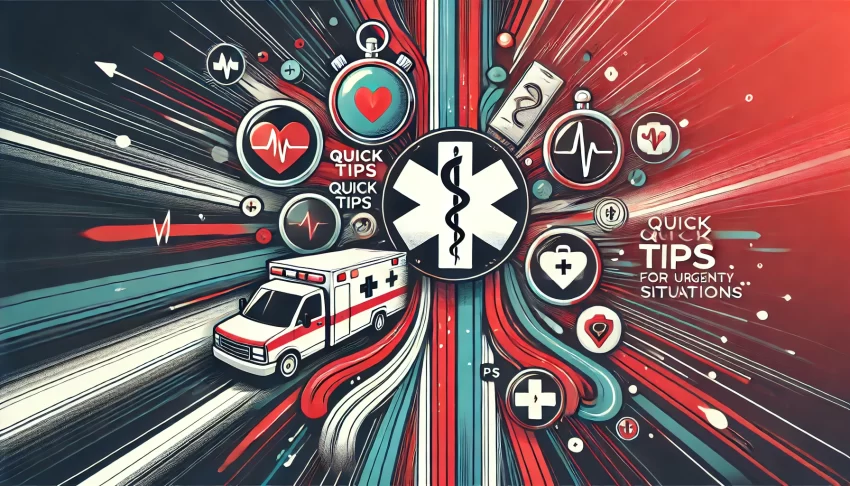In situations of medical distress, it is vital to be able to act wisely and quickly as this can have a positive impact on the results. Here’s a guide to provide you with essential emergency medical advice:
Evaluate the Scene:
Keep quiet for a moment and look around for possible threats.
Put your safety and other people’s safety first before any kind of assistance can be rendered.
Request for Assistance:
Call the police rescue services (911 or other emergency line) and report to the emergency servicemen.
Be specific about the situation, your location, and the number of individuals involved.
Provide Basic First Aid:
If possible, and if you’ve been taught the procedure, perform basic first-aid treatment and wait for the professional to arrive.
And also treat any of the most immediate outcomes, for instance, excessive bleeding, suffocation or cardiac arrest.
Performing CPR:
In case there is a person who has collapsed and does not have pulses and does not respond, do CPR if you know how.
Do chest compression and mouth to mouth rescue.
Let’s make someone stop bleeding:
A clean cloth or bandage should be pressed directly on the wound.
If feasible and safe, elevate the injured limb and keep pressure until professional medical services are available.
Choking:
In case of a choking victim: the Heimlich maneuver can be administered if the victim is conscious.
If the person is unconscious however, begin CPR and open monitor the airway for any spinal fluid or food.
Hyper-Sensitivity Reactions:
For the treatment of any diagnosed severe allergy, carry an epinephrine auto-injector.
In the event of any allergic reaction, it is advisable to call for emergency medical services.
Inflammation of the skin:
Use cold running water to cool the burn area without using ice for the small burn injury.
Use handkerchiefs for covering wounds and get medical help as intensive care is not advised for 3rd degree burns.
Injuries due to Chemicals:
If exposure occurs, contact poison control as soon as possible.
Information for the type of poison taken should be provided and the directions given over the telephone should be adhered to.
Injuries of bones and ligaments:
The part should be immobilized and the affected area raised.
Stop any movement by yourself, use a splint if there is any, and go to a doctor.
Conditions affected by extreme heat and where Medical Help is needed:
Encourage the individual to sit down in a cooler area.
Douse the person with water and cover them with wet cloths or immerse them in water.
Conditions where the person is at risk of extreme cold:
Wear proper clothing and go to a place where it is warm.
If someone appears to be cold and appears to be quite low in temperature, then they should be taken to a hospital straight away.
Stroke:
Identify and recall stroke symptoms: droop face, weak arm, difficult speech.
Record time and call for medical assistance.
Remain with the Individual:
Provide supportive measures to ease anxiety until expert help arrives.
Pay attention to the patient and inform services if anything changes.
Keep in mind that contacting help and remaining composed are very important in cases of emergency. Know basic first aid and CPR as well as encourage people within your locality to learn.
